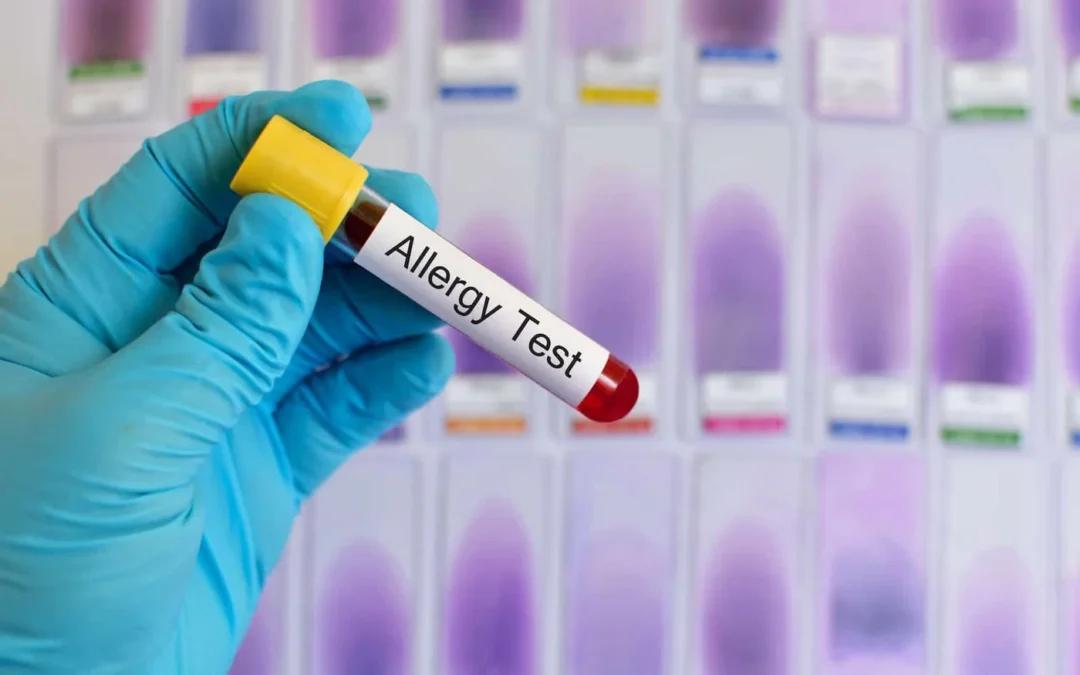Allergies can turn everyday activities into constant challenges—whether it’s persistent sneezing, itchy eyes, or even life-threatening reactions. With millions affected worldwide, finding a precise and safe method to identify your triggers is crucial. In this post, we explore how an allergy blood test works, its benefits, and how it leads to effective relief through targeted treatment.
What Is an Allergy Blood Test?
An allergy blood test is a diagnostic tool that measures the level of immunoglobulin E (IgE) antibodies in your bloodstream. When your immune system encounters an allergen—like pollen, pet dander, or certain foods—it produces IgE antibodies to fight off the perceived threat. These antibodies can be quantified through a simple blood draw, allowing healthcare providers to determine which substances might be triggering your allergic responses.
Unlike skin prick tests, which require direct exposure of your skin to allergens and can sometimes be uncomfortable or contraindicated (especially if you’re on antihistamines or have severe eczema), the blood test is minimally invasive and safe for people of all ages. This makes it a particularly valuable option when skin conditions or medication interference might skew test results.
Benefits of Allergy Blood Testing
An allergy blood test offers several key benefits:
- Fast Diagnosis:
Results are typically available within a few days, allowing for a swift start to targeted treatment plans. - Accuracy and Reliability:
By measuring specific IgE antibodies, the test provides objective, quantifiable data that helps pinpoint exactly which allergens are causing your symptoms. This is especially useful when comparing different testing methods and establishing “predictive values” for common allergens. - Safety and Comfort:
Since no allergens are directly applied to your skin, the risk of triggering a severe allergic reaction during testing is minimized. It is also ideal for those who cannot temporarily stop their medications or have sensitive or compromised skin.
- Guiding Effective Relief:
With accurate identification of your allergens, your healthcare provider can recommend a treatment plan—ranging from medications and immunotherapy to lifestyle changes—that is tailored specifically to your needs.
Understanding Your Test Results
Allergy blood tests report results in terms of IgE antibody concentrations. Here’s what to know:
- Total IgE vs. Specific IgE:
A total IgE test measures the overall level of IgE antibodies in your blood, while a specific IgE test pinpoints the response to individual allergens. - Interpreting the Numbers:
Higher levels of specific IgE often correlate with a greater likelihood of experiencing allergic symptoms upon exposure. However, your provider will interpret these numbers in the context of your overall clinical picture, as no test is 100% predictive on its own. - False Positives:
In some cases, elevated IgE may occur without clinical symptoms. Therefore, a positive test result should always be discussed in conjunction with your medical history and symptoms.
This detailed analysis helps ensure that your treatment plan is based on a precise diagnosis rather than assumptions.
Post-Diagnosis: Effective Relief and Treatment Options
Once your allergens are identified, your provider can craft a personalized treatment plan that may include:
- Medical Treatments:
Options such as antihistamines, corticosteroids, or even immunotherapy (allergy shots) can reduce the severity of your reactions by targeting the underlying immune response. - Lifestyle and Environmental Adjustments:
Reducing exposure to identified allergens—such as using air purifiers for pollen or avoiding certain foods—can significantly lower your risk of a reaction. - Regular Monitoring and Follow-Up:
Allergy conditions can change over time. Periodic re-testing and consultations help adjust treatments as needed, ensuring ongoing control of your symptoms.
Frequently Asked Questions (FAQ)
Q: Is an allergy blood test as effective as a skin prick test?
A: Yes, for many patients the blood test provides reliable and accurate results, especially when skin conditions or medications might interfere with skin testing.
Q: How quickly will I know the results?
A: Results are typically available within a few days, allowing your healthcare provider to quickly initiate a tailored treatment plan.
Q: Are there any risks associated with the blood test?
A: The procedure is minimally invasive and generally very safe, with only a slight risk of bruising or discomfort at the needle site.
Q: Can the test predict the severity of my allergic reactions?
A: While higher IgE levels can suggest a greater likelihood of symptoms, the test itself does not predict the severity of reactions. Your provider will combine the test results with your medical history to assess risk.
Conclusion and Call-to-Action
Accurate allergy diagnosis is the first step toward regaining control over your symptoms. An allergy blood test offers a fast, safe, and reliable method to identify your specific allergens, paving the way for targeted, effective treatment. If you’re tired of guessing which allergens might be affecting you, it might be time to consider an allergy blood test.

